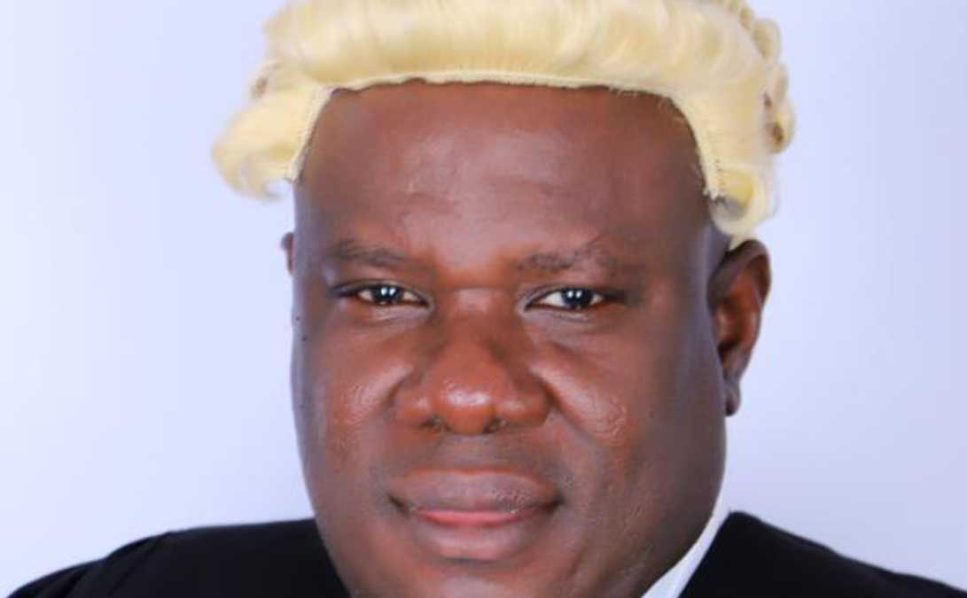
As off-season elections are billed to take place soon and will most likely result in election petitions, AMEH OCHOJILA highlights some of the outstanding provisions of the 2022 Electoral Act, especially paragraph 50 of the first schedule that dwells on consolidation of cases.
The birth of an amended electoral Act on 25th February 2022, by President Muhammadu Buhari added certain new spectacular features into the electoral law.
The 2022 Electoral Act (as amended Act) repealed the Electoral Act No. 6, 2010 (the former Act) and is intended to bring innovations to the regulation of Federal, State, and Area Council elections in Nigeria.
Some of these are, Section 3(3) of the Electoral Act 2022. It provides that funds for general elections must be released at least one year before the election. Under the former Act, the disbursement of funds for the elections were made in accordance with rules set out by the commission.
Also, by virtue of Section 29(1) of the Electoral Act, 2022, political parties shall hold a primary and submit the list of candidates no later than 180 days before the date appointed for a general election. Under the repealed law, submission of a list of candidates was not more than 60 days before the date appointed for a general election.
Sections 47 and 50(2) of the Electoral Act, 2022 give legal backing for the use of smart card readers, electronic accreditation of voters, and any other voter accreditation technology that the Independent National Electoral Commission (INEC) deploys. Not just that, it gives legal backing to the electronic transmission of results as INEC now has the power to determine the manner(s) of transmission of results.
Recall that the Commission introduced the result viewing (Irev) portal in August 2020. Section 62(2) gives the Commission the power to maintain a centralised electronic register of elections for recollection among other significant issues.
Specifically, a salient paragraph of significance introduced is the provision of paragraph 50 of the First Schedule of the Act, 2022 which states that “where two or more petitions are presented in relation to the same election or return, all the petitions shall be consolidated, considered and be dealt with as one petition unless the Tribunal or Court shall otherwise direct to do justice or an objection against one or more of the petitions has been upheld by the Tribunal or Court.”
According to John Roberts, an American lawyer and jurist, the term ‘consolidate’ has a legal lineage “that one of multiple cases consolidated under the rule retains its independent character.” Roberts wrote, “we understood consolidation not as completely merging the constituent cases into one, but instead as enabling more efficient case management while preserving the distinct identities of the cases and the rights of the separate parties to them.”
He cited the law-school-staple evidence case and the Mutual Life Insurance Co. v. Hillmon as matters, which held that consolidation is a matter of convenience and economy of administration, but does not merge the suits, change the rights of parties or make a party to one action a party to another consolidated action.
“Consolidation,” by Dahiru Musdapher, JCA (as he then was), in the case of: Kutse v. Bakfur (1994) 4 NWLR (Pt.337) 196 at 209 E-G CA, where he, inter-alia, stated: “Now Consolidation of actions is the process whereby two or more distinct actions pending in the same court are by order of court joined and tried together at the same time.
“The actions though separate and distinct are tried simultaneously in the same proceeding. Although consolidated actions are tried and determined in the same proceeding, each remains a separate and distinct action and has its own judgment given separately at the end of the common trial.”
This same process was adopted by the Presidential Election Petition Court (PEPC), which delivered its consolidated judgment for 13 hours last Wednesday. Although consolidated, it treated the petitions separately too.
In agreement, a lawyer, Christian Oti explained that the whole essence of consolidating petitions or cases for that matter, is for speedy adjudication.
He said: “It should be noted that consolidation of the petitions does not amount to merging the petitions to one, but a legal process of hearing them simultaneously. The Court or tribunal must then deliver separate judgments.”
The lawyer clarified that contrary to layman understanding of the concept of consolidating a case, which means making the petition one, it’s not one (litigation) but to be heard simultaneously for time sake.
According to legal experts, because of the increasing importance of case consolidation and the growing number of litigants whose cases will be consolidated with others, this is a fitting time not only to refine the circumstances under which cases should be consolidated, but also to examine the effects of consolidation on the procedural rights of litigants.
He said it is essential for courts, lawyers, and litigants to understand the implications for litigants’ procedural rights, before consolidation is ordered, so that all can weigh the pros and cons of consolidation, so that when appropriate, courts may alter some of the ordinary procedural consequences of consolidation.
However, a senior lawyer, Terkura Pepe (SAN) said: “This provision is hardly observed in practice, except where a political party and its candidate present separate petitions.
The provision, according to the SAN, is for convenience. In most cases, the lawyer said, it is impracticable and inconvenient to consolidate petitions that are presented by two or more different political parties based on different grounds, facts and legal contentions.
Consolidation, to put in plain language, means to combine (two or more lawsuits or matters that involve a common question of law or fact) into one comparable class action, he explained.
However, in Nigeria’s jurisprudence, consolidation, according to lawyers, is governed by rule 42 of the Civil Procedure Rules of the Federal High Court.
Rule 42 states that: “(a) Consolidation. If actions before the court involve a common question of law or fact, the court may: (1) join for hearing or trial any or all matters at issue in the actions; (2) consolidate the actions; or (3) issue any other orders to avoid unnecessary cost or delay. (b) Separate Trials. For convenience, to avoid prejudice, or to expedite and economise, the court may order a separate trial of one or more separate issues, claims, cross-claims, counter-claims, or third-party claims. When ordering a separate trial, the court must preserve any federal right to a jury trial.”
For Sylvanus E.O Maliki, an Abuja based lawyer, the importance of consolidating and hearing all petitions arising from the same election hinges on the fact that it is nearly impossible to have two separate panels hearing two or more separate petitions arising from the same election or return. This, he said, is because having two separate panels hearing petitions arising from one particular election would definitely lead to contradictory judgments.
He further held that it is obvious that a singular all-encompassing judgment will be delivered in favour of all the parties so that there are no conflicting judgments.
“The most germane reason for consolidation of petitions arising from the same election is to avoid delivering judgments that are conflicting. When the same panels hear the entire proceedings and deliver a single judgment that encompasses the cases of all Petitioners, there won’t be a likelihood of delivering judgments that are conflicting,” he argued.
Citing the example of the just concluded PEPC decision, he said: “If a separate panel is set up to hear the case of APM and Anor v INEC and others, and another Panel is set up to hear Labour Party & Anor v INEC & Ors., it will breed confusion. This is because the only issue raised by APM in their petition was the issue of double nomination of the Vice-Presidential candidate of the APC, while LP raised several issues bordering on the conduct of the election as well as the issue of double nomination of the Vice-Presidential candidate of the APC. Now, the panel handling the case of APM may hear and give their decision within one month since it is only one issue to be determined.
“However, there are several other issues to be handled by the LP panel as well as the issue of double nomination, which will take longer time in the process of tendering all required evidence before the court. The decision of one panel may contradict the other because different evidence or issues might have been raised at the separate panels. This is why it is literally impossible to have separate panels hearing two or more separate petitions arising from the same election.
“The same panel is handling several petitions but at fixed times. The final decision of the panel will be a consolidated judgment of the panel, reflecting the arguments, submission and arguments of all the Petitions instituted.”
Maliki pointed out that it would result in greater conflict to have a panel set aside and election because it finished before another panel, only for the later panel to affirm the election of the party whose election had been upturned by the former.






